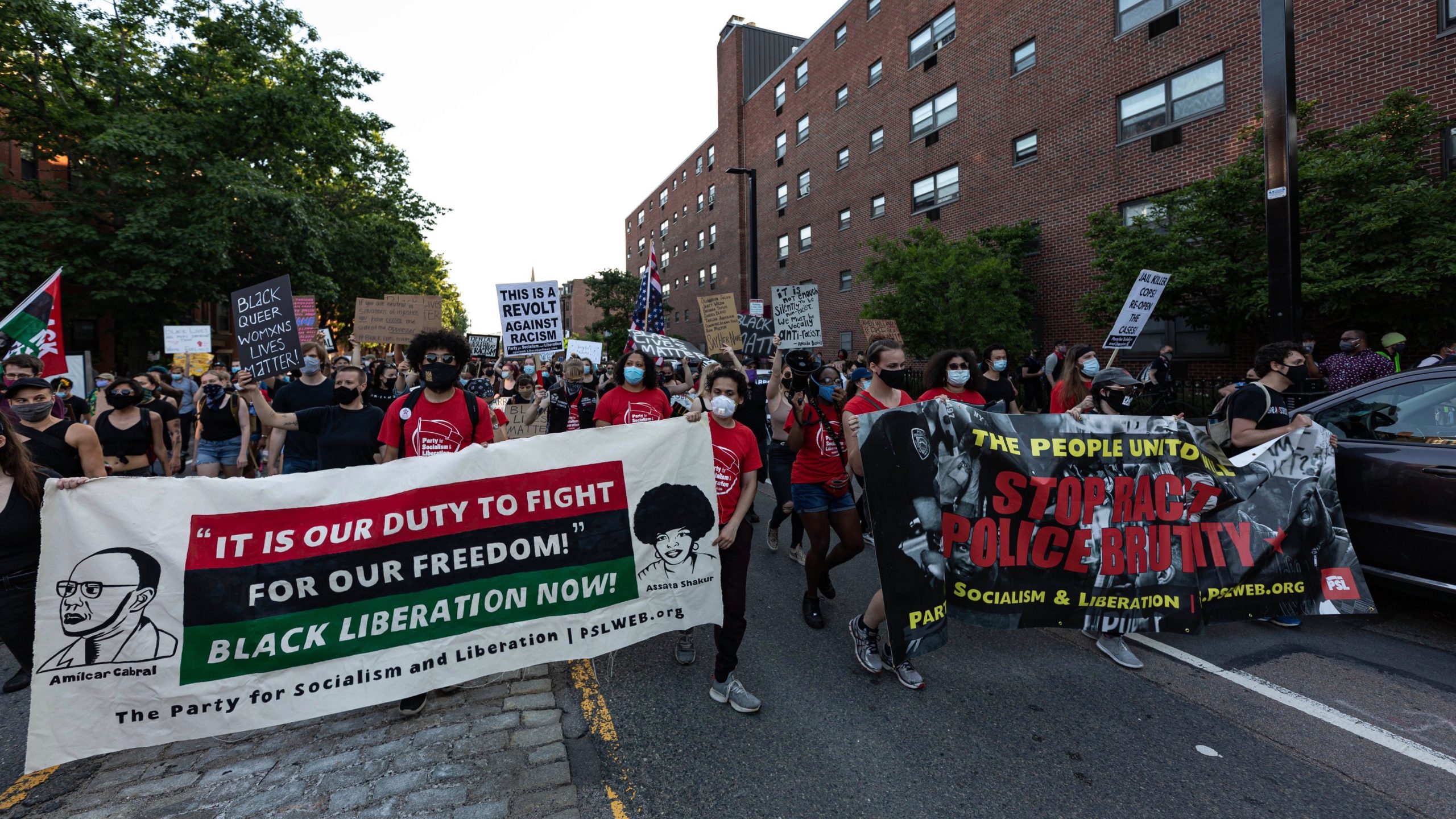Protests continue in hundreds of cities across the United States against racism, and demanding justice for its victims more than a month after the killing of George Floyd. In cities such as New York City and Seattle, protests are taking place every day. While the memory and demands for justice for George Floyd, Breonna Taylor and Ahmaud Arbery remain central to this wave, the rallying cry of Black Lives Matters has translated to concrete demands to local, state and federal officials across the country. Far from a moment, the US is seeing one of the largest movements in its history.
The New York Times reviewed four polls which looked at different questions regarding the protests and demands and estimated that anywhere between 15 and 26 million people in the US have participated in Black Lives Matter demonstrations as of mid-June.
Demands from organized movements and activists range from the call to end impunity for officers involved in violence and the killing of Black, Latino, Native and working-class people to an end to police brutality against protesters. There have been calls for defunding the police and repressive apparatuses, as well as for increased investment in key services such as public education, housing and healthcare. People mobilizing on the ground are no longer satisfied with empty promises and vague ‘reform’ gestures. They seek systemic change.
On July 4, which is celebrated as Independence Day, many questioned the meaning of independence in a country founded on genocide and slavery and which is propelling itself forward as a global imperialist power through racialized capitalism. July 4 protests were held in New York City (New York), Nashville (Tennessee), Orlando (Florida), Pittsburgh and Philadelphia (Pennsylvania), Atlanta (Georgia), Washington DC, Seattle (Washington), Chicago (Illinois), Boston (Massachusetts), Oakland (California), Dallas (Texas), among others.
In Seattle, the Black Femme March organized on July 4 had a tragic end when a driver drove their car into the crowd that was marching on a freeway in the city. 24-year old Summer Taylor was killed and another protester, Diaz Love, was gravely injured. The violent police response to protests since May 25 has cost several lives already and left many with serious injuries such as loss of vision.
In Aurora, Colorado, sustained mobilizations have been held to demand justice in the case of 23-year-old Elijah McClain, a massage therapist and violin player, who was murdered by police on August 24, 2019. Police officers had stopped him for “looking suspicious,” and proceeded to pin him down, put him in a chokehold and inject him with a large dose of ketamine. McClain suffered a heart attack and died in the hospital days later. According to Liberation News, “The coroner’s report left the cause of death as “undetermined” and the District Attorney declined to press any charges. To this day, his family has been denied any form of restitution from the city because Elijah McCLain had been classified as a ‘suspect.’”
On July 3, the Party for Socialism and Liberation and the Frontline Party for Revolutionary Action organized an action to demand justice for McClain. They marched from the site where McClain was murdered to outside the Aurora Police office and held a peaceful occupation with the intention to stay until the demand was met that the officers involved in his death be fired. The several-thousand people strong occupation was violently repressed by police at 4 am on July 4, and the police department still refuses to meet the people’s demands.





